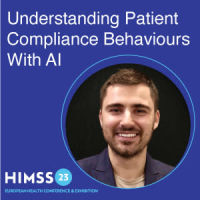A machine learning tool has been created to help predict patients at high risk of developing COVID-19. The technology has been developed by a team of researchers at Imperial College London and the Infection Prevention and Control (IPC) unit at Imperial College Healthcare NHS Trust.
The tool has been trained to identify risk factors associated with COVID-19 infections, including age, gender, social contact with other infected patients, where beds are allocated and how patients move around the hospital.
COVID-19 infections that developed following admission to hospital have been estimated to account for 12-15% of all COVID-19 cases in healthcare settings, and up to 16.2% during the worst waves of the outbreak.
Predicting the number of COVID-19 infections that can develop in hospitals normally depend on identifying appropriate risk factors including age, gender identity, comorbidities and length of stay. However, factors including patient contacts, locations, and patient movement through the hospitals must be considered.
Therefore, to help predict the patients most at risk of testing positive for COVID-19, researchers combined information into a forecasting framework. The information pertained to bed allocation and on which patients shared the same room or ward on the same day. The framework will then provide a predicted risk score between 0 and 1.
The tool was first trialled using data from 51,157 patients at Imperial College Healthcare NHS Trust hospitals during the first COVID-19 waves. Ultimately, the tool helped to predict which patients were most at risk of contracting COVID-19 in hospital. This is imperative information as it will help with finding the best measures to reduce transmission and minimise outbreaks in hospitals.
The machine learning framework had an 87% accuracy. It has proven that it can be used as a part of a range of a surveillance tools to improve disease outbreak detection in hospital settings, particularly during the winter months.
The next steps would be to extend the framework to include the omicron strain of COVID-19 and other infectious diseases. A tool that can accurately predict patients’ risk of contracting infections is a clinical solution in demand.
As Sid Mooker Jee, co-author of the study, summarised, “This can help hospital managers and clinicians design safe and effective patient care pathways and bed management, helping deliver world class care”.
Source:Imperial College London News
Image Credit: iStock



























